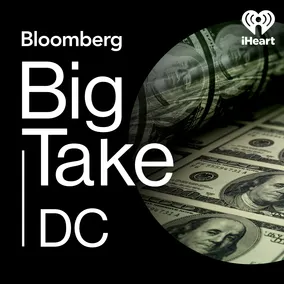
Gift this article
In this Article
United States House of Representatives
Follow
Follow
Follow
Follow
Have a confidential tip for our reporters? Get in TouchBefore it’s here, it’s on the Bloomberg Terminal LEARN MORE
By Kurt Wagner
September 16, 2024 at 6:00 PM GMT+7
Save
Listen
6:28
TikTok is heading toward its moment of truth in the US.
President Joe Biden signed bipartisan legislation in April that will ban the social media app in the US unless its Chinese owner gives up control of it. TikTok’s parent, ByteDance Ltd., was given 270 days to find a buyer. TikTok is waging a legal battle to block the law from taking effect. The US Court of Appeals in the District of Columbia is scheduled to begin holding oral arguments in the company’s challenge on Sept. 16.
Why did Congress act against TikTok?
The concern among lawmakers is that TikTok poses a security threat to US users because China requires its companies, upon request, to share any national security-related data with the government. There are fears that the Chinese government could abuse the data of TikTok’s users, for example by developing profiles of them and subjecting them to blackmail, and that it could influence the content American users see on the app.
What’s TikTok’s response?
TikTok has pushed back vehemently on these concerns and spent more than $2 billion on a project it says cordons off US users’ data. In a May 5 court filing challenging the law, it said: “For the first time in history, Congress has enacted a law that subjects a single, named speech platform to a permanent, nationwide ban, and bars every American from participating in a unique online community with more than 1 billion people worldwide.”

Big Take DC
TikTok Bill Takes On China’s Influence
19:10
If it loses in court, would ByteDance actually sell TikTok?
ByteDance has every reason to push back against separating from TikTok’s incredibly valuable (and growing) business. The Chinese government would also need to approve any divestiture plan and has said publicly that it would oppose a forced sale. It’s conceivable US lawmakers could be placated by something short of a full sale; possibly TikTok could become its own individual entity headquartered in the US, with ByteDance remaining an investor.
Complicating matters further is that former President Donald Trump, the Republican nominee for the presidency in the Nov. 5 election, has said he is against a sale, reversing the stance he took when he was in office. Trump’s opposition could play a factor if he ends up winning the election before a sale process is finalized.
Who might buy TikTok?
Anyone buying the company would need a fat pocketbook. ByteDance, which is privately traded, has an estimated valuation of about $268 billion, and while TikTok’s US business would certainly be much smaller, it could still fetch a price of around $40 billion to $50 billion. By comparison, Elon Musk paid $44 billion for X, the social media platform formerly known as Twitter, in 2022.
A price tag that high eliminates most potential buyers from the outset. Meta Platforms Inc. and Alphabet Inc. might seem logical acquirers, but they are mired in regulatory concerns over monopolization, which would essentially rule them out.
Oracle Corp. is often seen as a likely landing spot, as the enterprise software company is already a TikTok partner in the US. It houses the app’s US user data and was interested in possibly buying the app when then-President Trump tried to force a sale in 2020. However, Oracle has around $84.5 billion in debt, including from another large acquisition in 2022, making it unlikely the company could afford TikTok on its own.
Microsoft Corp. was one of the other leading candidates to buy TikTok’s US business in 2020, but that deal ultimately fell apart. Former Treasury Secretary Steven Mnuchin has said he’s interested in buying the US operation.
Could TikTok survive without the US market if it’s ultimately banned?
Possibly. On its website, TikTok boasts that it is the No. 1 downloaded app in more than 40 countries. Even though the US is a very big audience, its 170 million or so monthly users are still a small fraction of TikTok’s total billion-plus users. ByteDance already operates a TikTok clone in China, called Douyin, with hundreds of millions of users.

Get the Singapore Edition newsletter in your inbox.
Go beyond the headlines with insights into one of Asia’s most dynamic economies. Delivered weekly.
Bloomberg may send me offers and promotions.
Sign Up
By submitting my information, I agree to the Privacy Policy and Terms of Service.
Still, as other platform operators have learned, the US is the most valuable market for social networks because of the prevalence of large advertisers willing to pay to reach US audiences. And ceding the US to a competitor would put the rest of TikTok’s global markets at risk, as there would be real concern that the network effects in the US could lure people away from TikTok to other US-focused alternatives.
A ban would also probably kill TikTok’s big ambition to expand the US version of TikTok Shop, which combines online entertainment with impulse buying. The company predicts that business could grow tenfold in 2024.
Who stands to benefit from a TikTok divestiture?
The most obvious answer here is Meta, which owns Instagram, an app that is already popular and features a TikTok rival product known as Reels. If TikTok was sold to another company and mishandled, or banned for any significant amount of time while the logistics of a divestiture were worked out, Reels would be the most obvious alternative for US users. Trump said he opposed forcing TikTok’s sale because it would benefit Meta, which suspended him from its platforms for two years in January 2021 after concluding that some of his posts encouraged his supporters to violently riot at the US Capitol.
It’s possible that other video-focused services could also benefit, including YouTube, which is owned by Alphabet. In addition to gaining users, Meta and YouTube would likely capture advertising dollars from TikTok if the app is no longer able to operate. The value of both Meta and Alphabet shares leaped after the divestiture bill passed the US House of Representatives. X could also see an uptick in users and advertising if TikTok disappears or struggles.
What are the politics involved?
The US debate over TikTok’s future could get messier as the general election approaches. Trump’s flip-flop on what to do about TikTok has complicated matters for Republicans. One wealthy Republican donor, venture capitalist Keith Rabois, posted on X before Congress acted that he would “never fund” candidates who voted against the bill, as some Republican members did. At the same time, votes in favor of the TikTok measure could hurt some politicians with young voters who love the app and will be upset if it’s banned.
Both Trump and Kamala Harris, the Democratic presidential candidate, have created TikTok accounts this year and are using the platform to campaign. A new study from Pew Research found that Americans are less supportive of a ban than they were a year ago.
Then there’s China’s reaction to consider. It’s unclear how the government would respond to a forced sale, but US-China trade and diplomatic relations would likely be affected. When the Trump administration pressed for TikTok’s sale years ago, China’s foreign ministry said that the precedent of acquiring a company under the pretense of protecting national security could lead to foreign countries targeting US companies, calling it the opening of a “Pandora’s box.”





